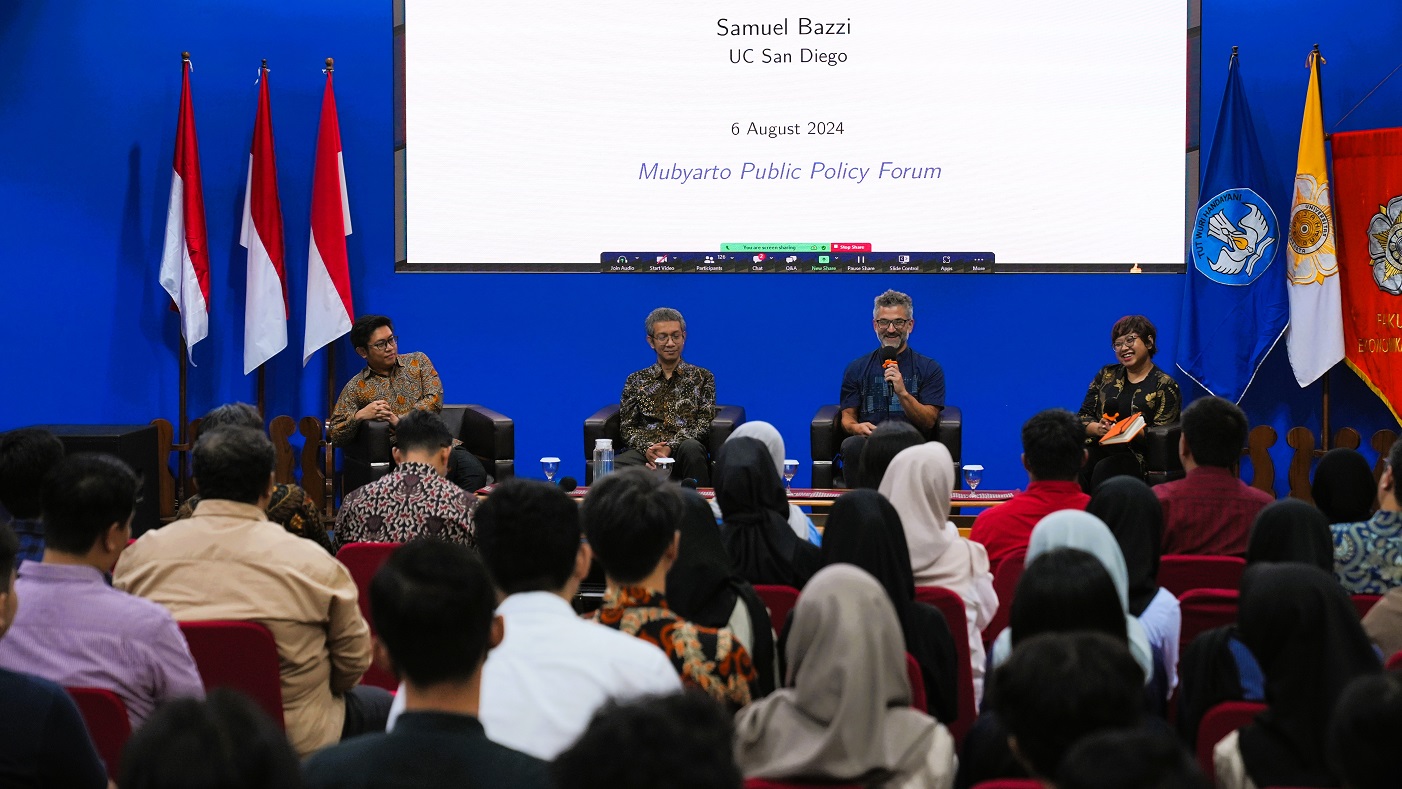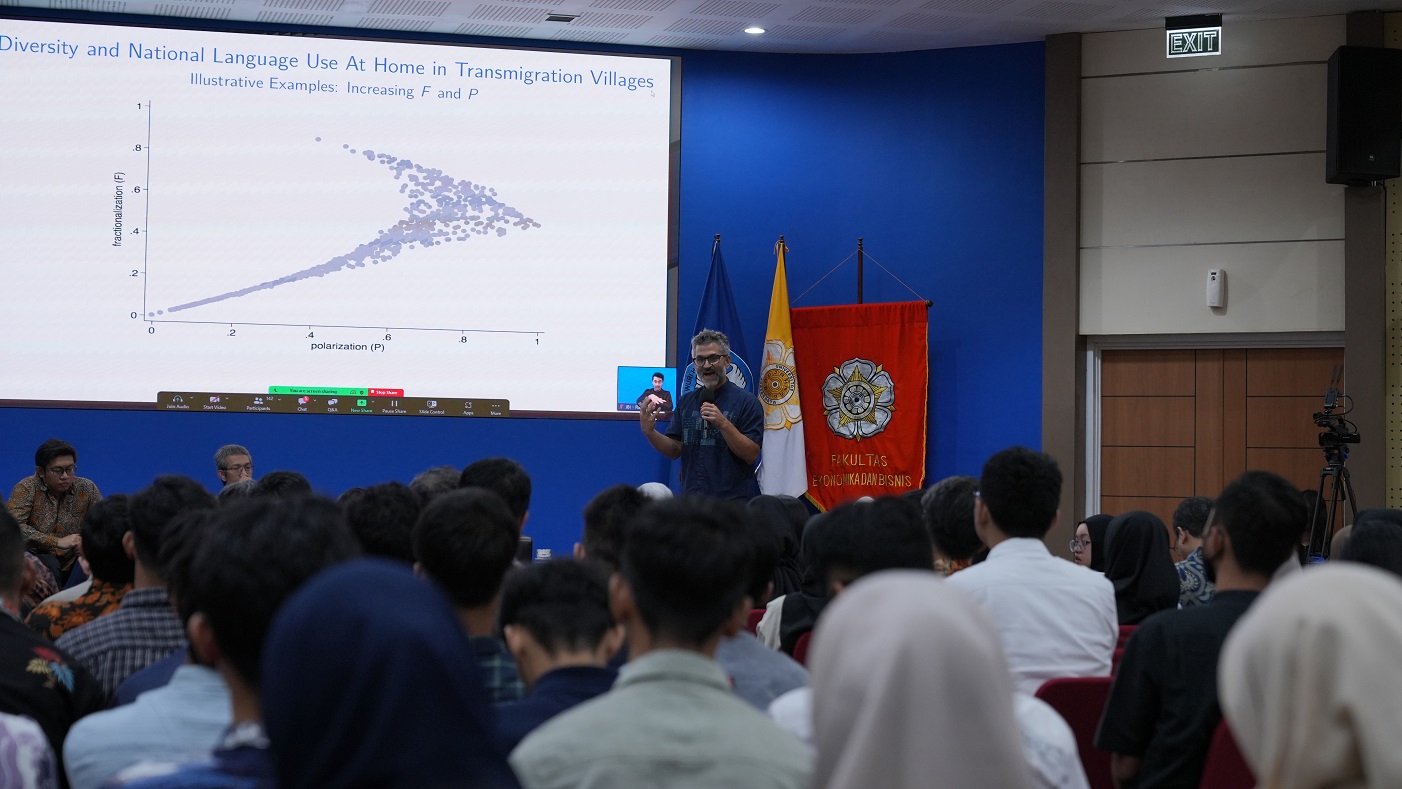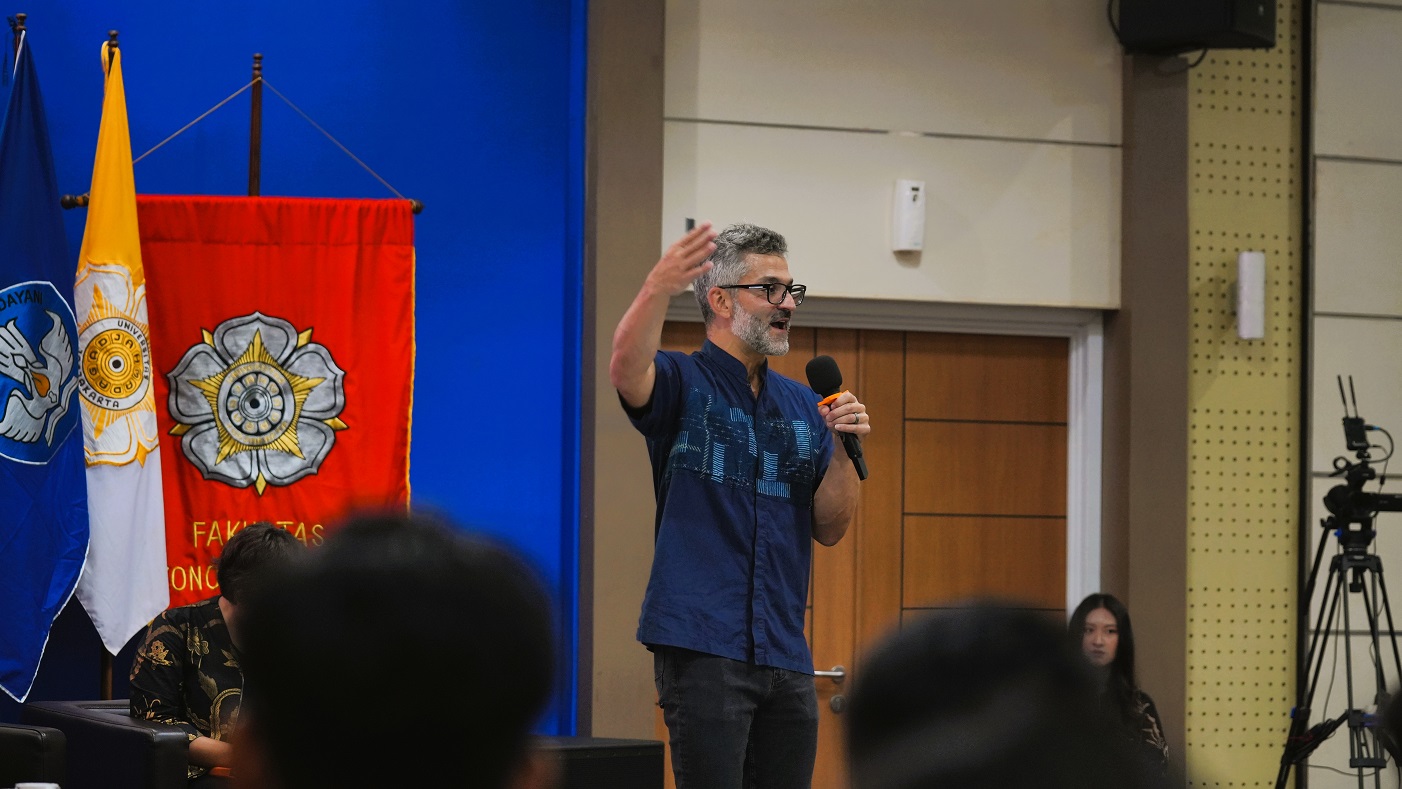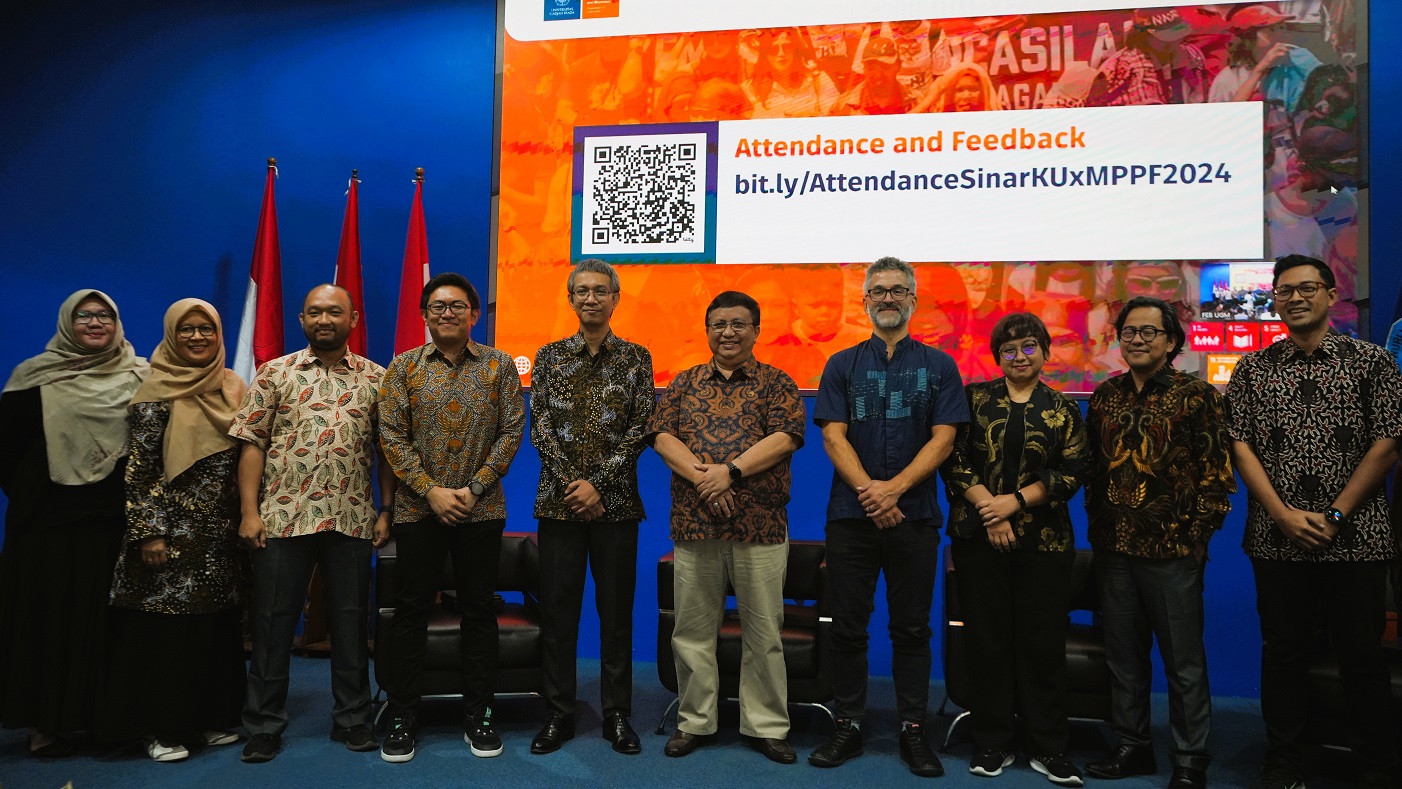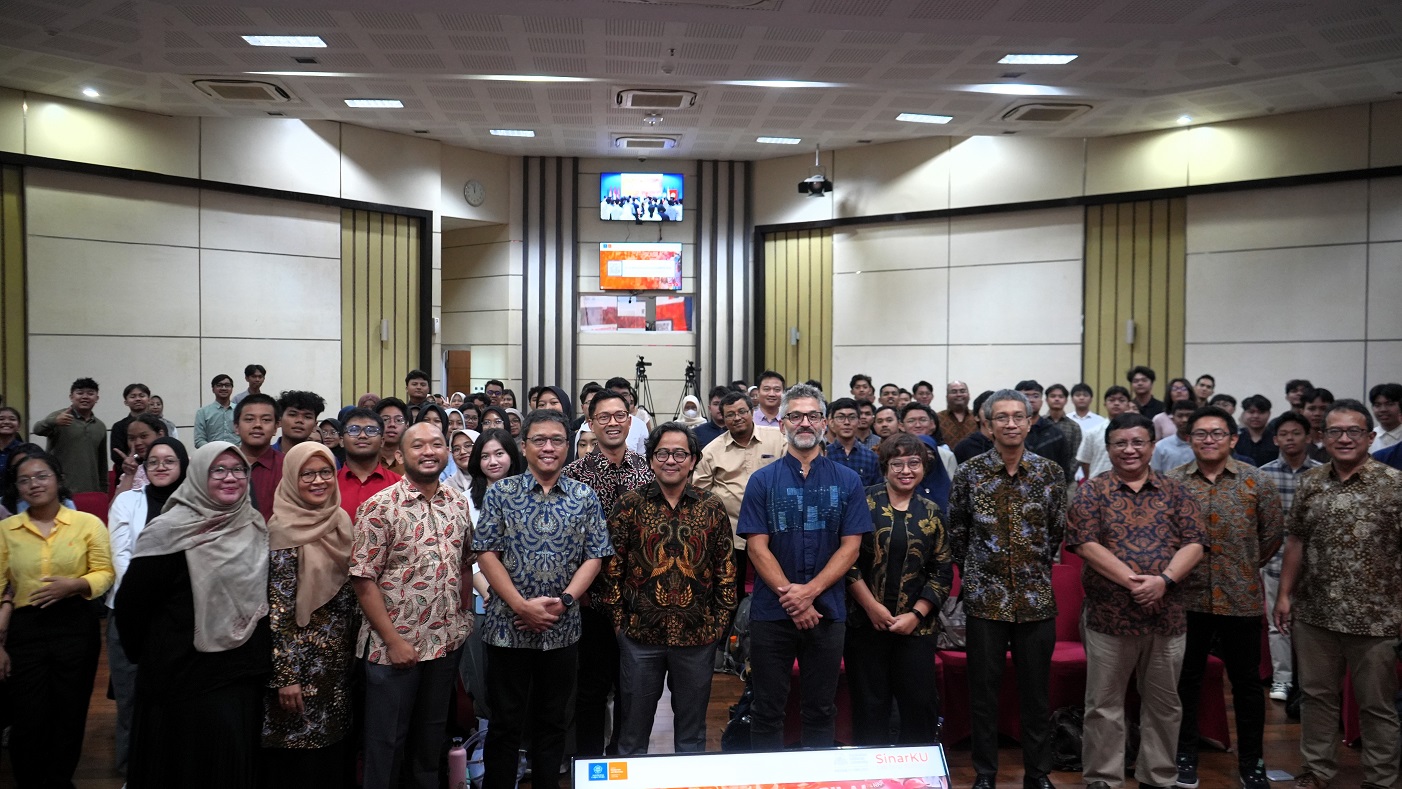FKP hosted by the Faculty of Economics and Business at Universitas Gadjah Mada (FEB UGM) and ANU Indonesia Project with Professor Samuel Bazzi (University of California San Diego), Dr Muhammad Ryan Sanjaya (FEB UGM), and Dr Jahen Rezki (LPEM FEB Universitas Indonesia). Tuesday, 6 August 2024.
KEY POINTS:
- Nation-building in Indonesia involves complex strategies that balance unifying diverse groups with respecting ethnic, linguistic, and religious identities. Through initiatives like the transmigration program and the adoption of Bahasa Indonesia as a national language, Indonesia has worked to promote social cohesion and integration. However, these efforts often encounter challenges, such as ethnic polarization and religious tensions, which require nuanced and adaptive policies.
- The role of bottom-up forces, such as urbanization, religious influence, and social capital, is crucial in shaping the outcomes of nation-building efforts. While government-led initiatives play a significant role, the organic reshaping of identities through socioeconomic changes and community practices like gotong royong also significantly impacts the success of nation-building, highlighting the need for policies that accommodate these grassroots dynamics.
SUMMARY
- In the 8th Mubyarto Public Policy Forum, hosted by FEB UGM and the ANU Indonesia Project, Professor Samuel Bazzi from UC San Diego explored the complexities of nation-building in a diverse society, drawing lessons from Indonesia’s history. His lecture underscored the distinction between state-building, which involves constructing the bureaucratic framework of a state, and nation-building, which focuses on cultivating a national identity that unites people across ethnic, linguistic, and religious lines.
- Indonesia’s nation-building process has been shaped by its struggle to unify a highly diverse population. During the colonial and post-colonial periods, efforts to build a cohesive national identity were crucial. Institutions like STOVIA, the first medical school for native Indonesians, played a significant role in fostering a sense of unity among diverse groups. However, this process has not been without challenges. Competing ideologies such as political Islam, communism, and nationalism, have historically influenced and continue to impact societal dynamics in Indonesia.
- A key element of Indonesia’s nation-building strategy was the transmigration program, redistributing the population from densely populated areas to less populated regions. This initiative sought to promote national integration, but it also sparked controversy, with critics accusing it of promoting “Javanization” and raising concerns about inter-ethnic conflict. Language policy was another crucial tool. The adoption of Bahasa Indonesia as the national language, though not the mother tongue of the majority, was a deliberate effort to create a unifying identity. Over time, the widespread use of Bahasa Indonesia has helped diminish ethnic divisions and foster a shared national identity.
- Professor Bazzi also highlighted the tension between top-down nation-building efforts and bottom-up forces such as urbanization and industrialization, which have organically reshaped identities in ways that sometimes conflict with state-led initiatives. The role of religion in Indonesia’s nation-building was another focus, particularly how Islamic institutions have influenced education and public life, often challenging secularizing policies and complicating efforts to create a homogeneous national identity.
- In response to Professor Bazzi’s presentation, two academics delivered discussions. Jahen F. Rezki (LPEM FEB UI) emphasized the importance of nation-building in promoting social integration, reducing divisions, and supporting economic development. Rezki praised Bazzi’s use of creative empirical methods to analyze Indonesia’s nation-building strategies and highlighted the complexities of managing ethnic polarization and religious politics. However, he also raised questions about the long-term persistence of nationalism in Indonesia and the impact of globalization on the nation’s identity.
- Muhammad Ryan Sanjaya (FEB UGM) questioned whether nation-building efforts necessarily conflict with maintaining ethnic identities. He explored how ethnic fractionalization can hasten nation-building while polarization hinders it, and discussed the costs associated with promoting cohesion and inclusion. Sanjaya also touched on the role of social capital and local community practices like gotong royong in fostering trust and stability in diverse communities, highlighting the nuanced outcomes of nation-building efforts.
- The Indonesian experience illustrates that while diversity can be a strength, it must be carefully managed to avoid becoming a source of division. Effective nation-building requires policies that promote social cohesion and integration, but these must be implemented with a deep understanding of the complexities involved.
